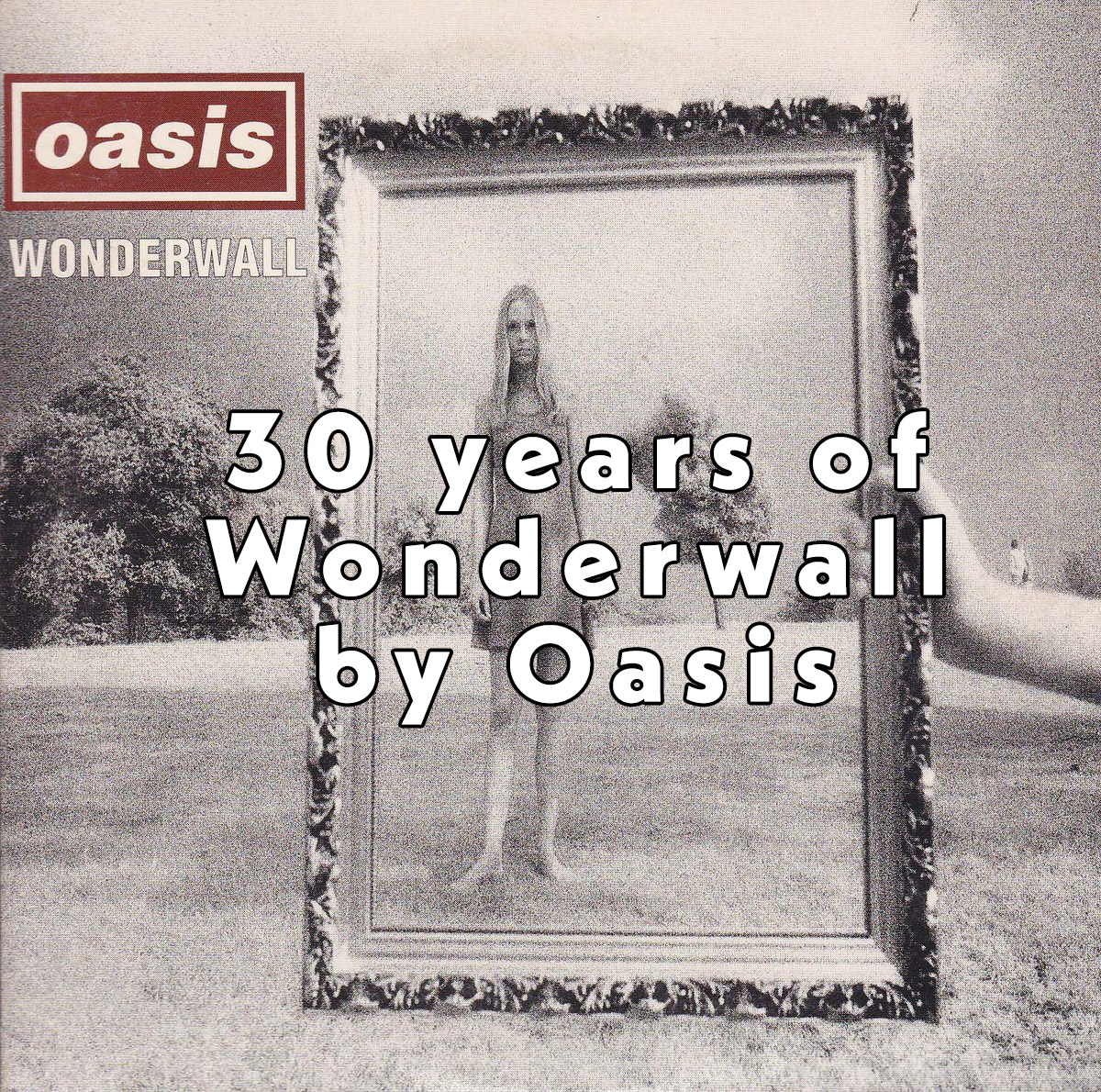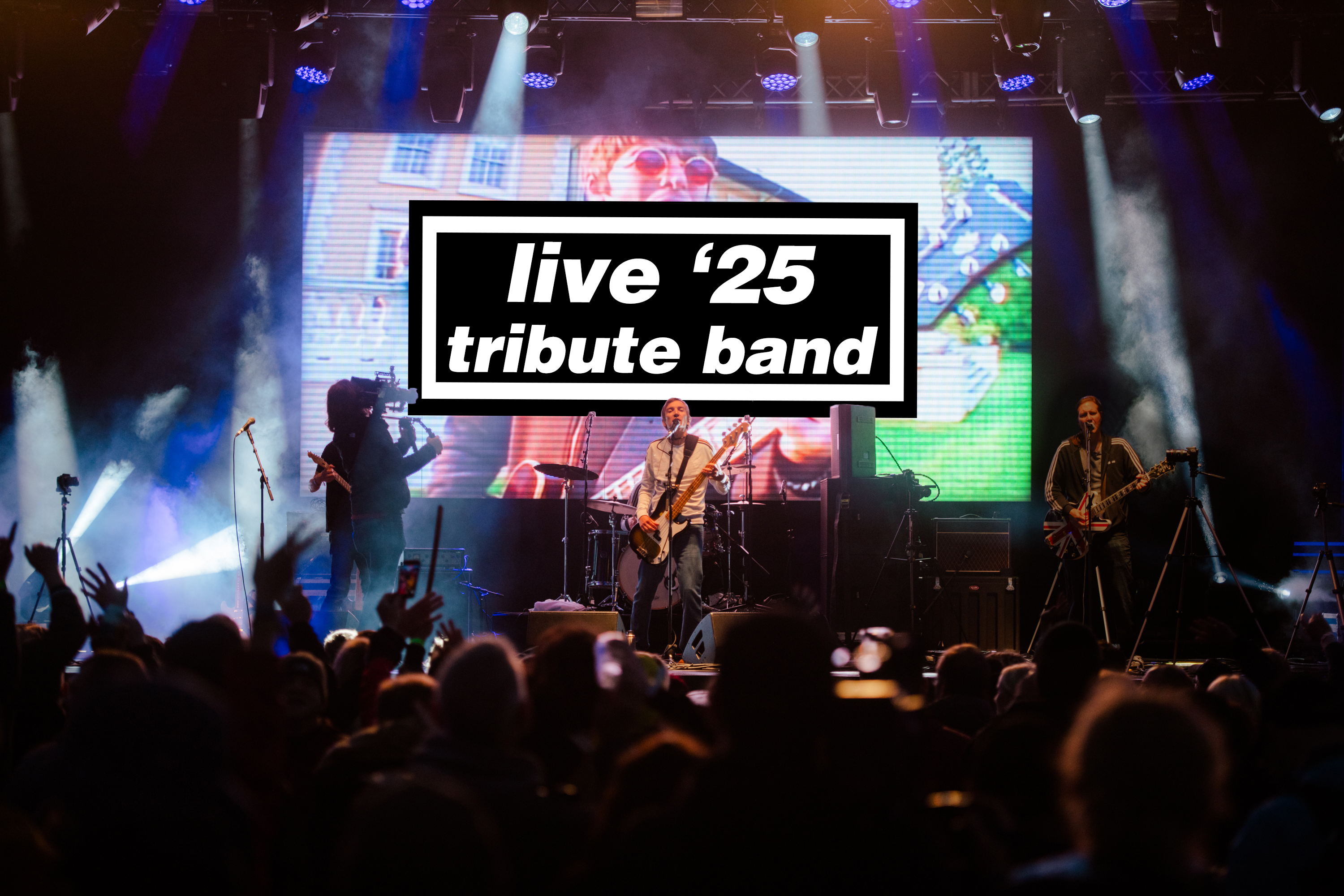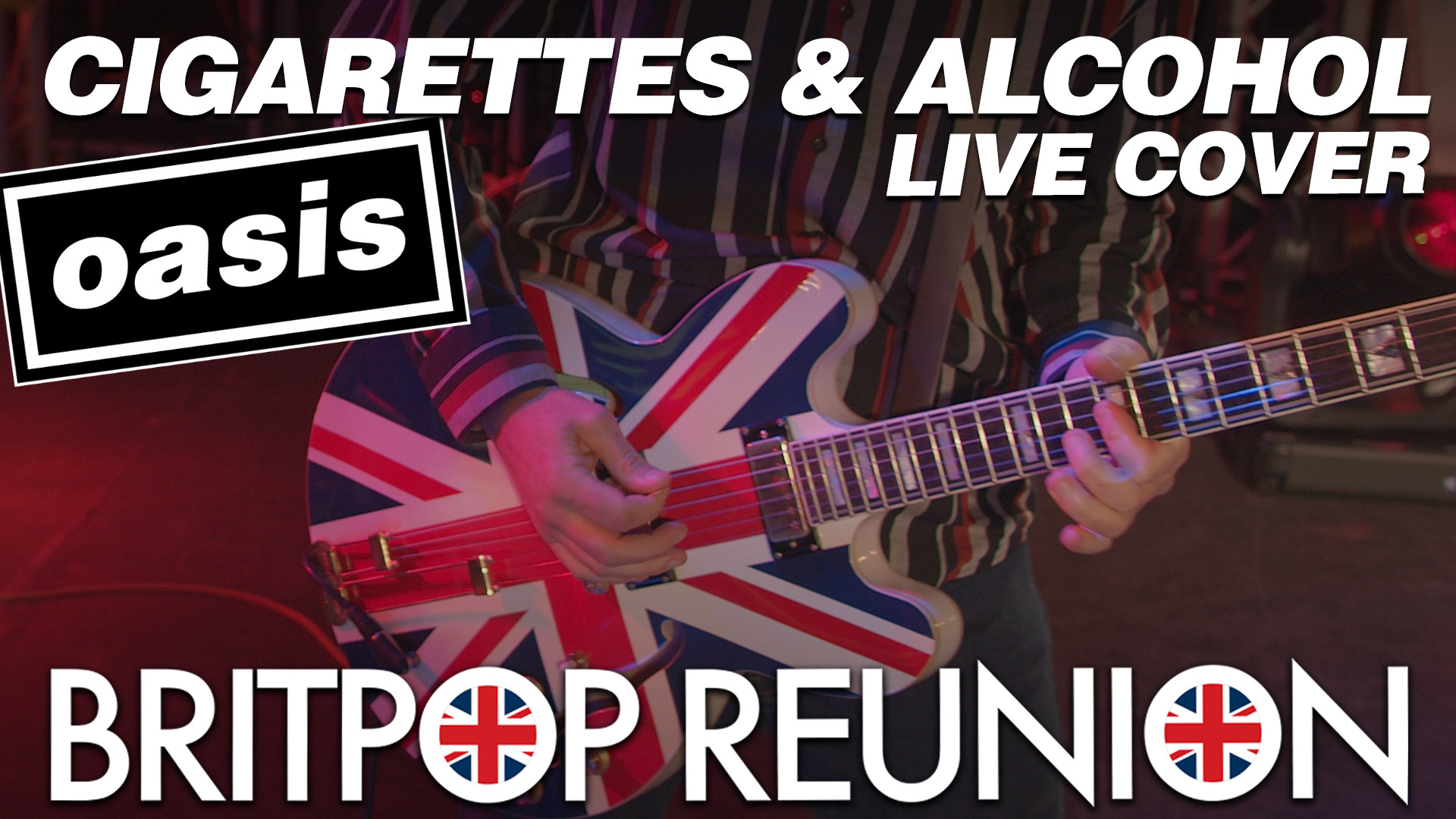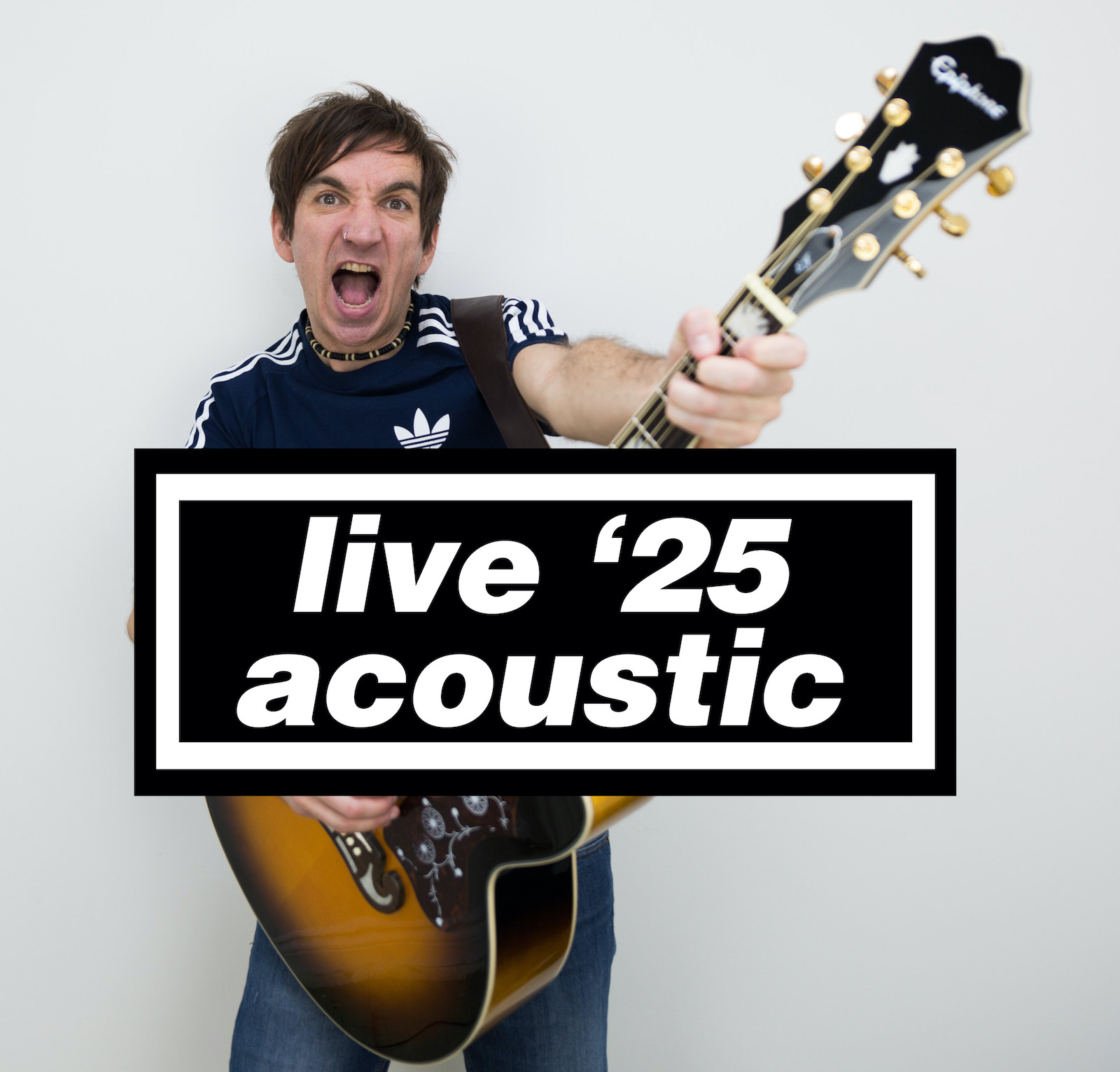On 30th October 2025 Wonderwall by Oasis will celebrate its 30th anniversary of release. Here are Britpop Reunion frontman Andy Starkeys thoughts on the most iconic (And some would say most well known) track ever released by a Manchester band. This contains excerpts of unused material from a 40 minute interview with GQ Magazine. To hire a britpop tribute band contact Andy with info on your date and venue.

30 years of Wonderwall by Oasis
When Wonderwall was first released in October 1995, it immediately felt like it was everywhere. The radio played it constantly, it was on TV, in shops—you couldn’t escape it. By the time it officially came out, I’d already heard it dozens of times. I was 19 then, right in the middle of the Britpop explosion, and it felt like the soundtrack to everyday life.
Back then, I was in an originals indie band. At that time, covers were considered taboo—totally uncool. If you were serious about being in a band, you had to write and perform your own material. Playing somebody else’s hit was almost like admitting defeat. We did once or twice sneak in Live Forever, but we’d never play Wonderwall. It was too obvious, too mainstream for our “serious” indie sensibilities.
A Wonderwall Weekend Warrior
Fast forward to today, and things couldn’t be more different. I perform Wonderwall every single weekend at weddings, festivals, and corporate events. It has become one of those songs that people not only expect but demand. If you’re in a Britpop tribute band, you simply cannot avoid playing it. It’s impossible to do a set without it, because audiences won’t let you.
What makes Oasis remarkable is that their singles weren’t just about the A-side. The B-sides were just as good, sometimes even better. The Wonderwall single included Round Our Way, The Swamp Song, and The Masterplan—tracks that many fans still consider classics. I always say Oasis’ singles were like mini-EPs. You bought every release not just for the hit song but for the hidden gems tucked alongside it. That culture of collecting—buying every format, every CD, every cassette—was something bands like Oasis, Blur, and Suede thrived on.
Is Wonderwall cliché or cheesy?
Some people dismiss Wonderwall as a cliché, and I understand why. It has been overplayed. You hear it on the radio, in supermarkets, buskers play it in every town square. It’s the “go-to” song to want to learn for amateur guitarists (Although it certainly isn’t an “Easy 3 chords song”. But for me, it’s beyond cliché—it’s iconic. Songs that reach that level of saturation don’t just fade away; they become cultural landmarks. In the UK, Wonderwall sits alongside tracks like The Beatles ‘Hey Jude’ or The Kinks ‘Sunny Afternoon’. It’s part of the national fabric.
Personally, I joke that Noel Gallagher pays my mortgage, because my career has been built, in part, on songs like Wonderwall. I’ve made a living performing Oasis music. That’s how deeply it resonates with audiences. And honestly, I don’t get tired of playing it. For me, music is a profession, not just a hobby. As long as people light up when they hear those opening guitar chords, I’ll happily play it.
The reaction from crowds is always the same—pure joy. It reminds me of what happened with Mr. Brightside by The Killers, which came out eight years after Wonderwall. The effect is identical. If you don’t play it, someone will shout at you until you do. Both songs are woven into British nightlife and culture in such a way that they’ve become compulsory. You can try to leave them off the setlist, but the audience will never let you.
Back to 1995
When I think back to 1995, it was such an incredible time for music. I remember walking into Woolworths and buying What’s the Story Morning Glory on cassette? I’d play it non-stop in my battered Fiat Panda as I drove around town. Alongside Oasis, it was Blur’s Parklife and The Prodigy’s Music for the Jilted Generation. That mix of Britpop, indie, and dance gave the decade its identity. To me, it felt like music was the most exciting thing in the world. Who would have thought that over three decades later I would be celebrating 30 years of Wonderwall by Oasis by doing an interview like this?
Oasis in particular were life-changing. They were one of the reasons I became a musician. Even now, decades later, I work full-time as a professional performer. That’s not something I imagined back in the nineties, when I was still dreaming of breaking through with my own material. Eventually, I moved into the tribute and cover scene, and I’ve never looked back. It provides a living, and it keeps me connected to the music I love.
The future of young talent still wanting to be Liam & Noel.
You’d be surprised how many young people still feel the same way about Oasis. The bands I help mentor—kids between 16 and 21—are obsessed with them. They’ll always include a couple of Oasis songs in their sets. They want to be Liam. They want to be Noel. It shows just how timeless this music is. The culture of “being in a band” is coming back too, after years of solo artists dominating the charts. Oasis, in many ways, made it cool to pick up a guitar again, and I think they’re still inspiring teenagers nearly thirty years later.
Some of my best memories as a performer are tied to Wonderwall. I’ve played it at massive festivals, where tens of thousands of people sang every word louder than we could play it. In those moments, it stops being Oasis’ song—it belongs to the crowd. I’ve also played it at weddings and made it the bride & grooms own personal anthem. It works every time. Even little kids, sometimes only five or six years old, on their dads shoulders, singing along to it word for word. That’s the legacy of Wonderwall—it has been passed down through generations.
Of course, some musicians roll their eyes at it. They call it cheesy, predictable. I don’t see it that way. For me, it’s never about my ego—it’s about the audience. If I only played what I wanted, I’d be doing deep cut Smiths or Depeche Mode tracks to three people in a pub. The power of Wonderwall is that it brings everyone together. You can play it to students at a university gig or to fifty-year-olds at a birthday, and the reaction is the same. The song just works.
The intro strummed chords.
The intro alone is enough. The strumming pattern, the chord progression—within seconds, everyone knows what’s coming. That’s the mark of a true classic. Like Lennon’s Imagine or McCartney’s Hey Jude, you don’t need more than a few notes before the entire room lights up.
I’ve even played with a Japanese Oasis tribute band called Otasis. Earlier this year, I performed with them in Tokyo, and it was surreal. British music being celebrated in Japan, with Japanese fans singing English 90s songs as passionately as any crowd in Manchester—it shows just how global Oasis’ impact really is.
Culturally, their influence is everywhere. Walk into almost any pub in Britain, and you’ll find a “Liam” somewhere—bucket hat, parka, sunglasses on……indoors. Oasis aren’t just a band; they’re a style, a mindset, an attitude. That hasn’t faded, even three decades later.
That’s why, for me, Wonderwall is more than just a song I play every week, week in, week out. It’s part of the reason I became a musician. It’s part of why I’m still a musician today. And it’s part of why whole new generations are picking up guitars again. Some call it cheesy. Some call it overplayed. I call it a classic that will never die.
Wonderwall was released on the 30th October 2025 by Alan McGee’s Creation Records. It was written by Noel Gallagher and produced by Owen Morris. It was shortly followed up by Don’t Look Back In Anger.


